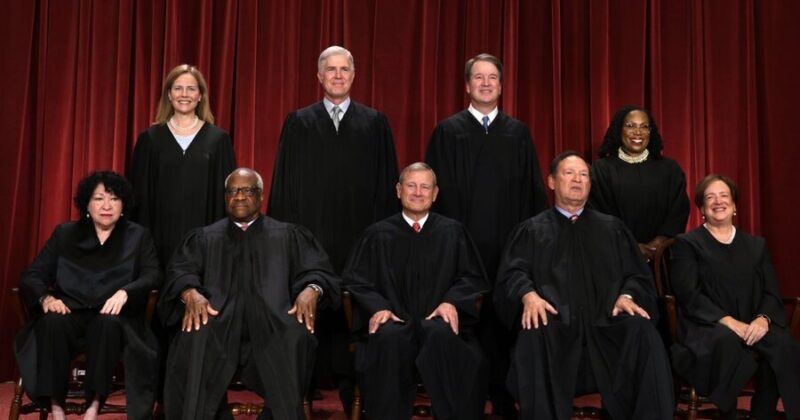On June 3, the U.S. Supreme Court brought back to life a lawsuit challenging the boundaries of a congressional district in Arkansas. Critics argue that these boundaries unlawfully weaken the voting power of African American voters.
Days after dismissing a claim that a congressional district in South Carolina was an unconstitutional racial gerrymander, the court issued this ruling.
This ruling sends the case back to a lower court and follows the Supreme Court’s recent tightening of the rules for pursuing claims of racial gerrymandering. The highest court in the nation instructed the lower court to review its decision in light of last month’s ruling.
The main petitioner in the case was Jackie Williams Simpson, an African American voter, while the respondent was John Thurston, the Republican secretary of state for Arkansas.
The ruling sends the case back to the U.S. District Court for the Eastern District of Arkansas, where it was previously thrown out on May 25, 2023.
A three-judge panel from the district court dismissed the challengers’ claim that the electoral map violated Section 2 of the federal Voting Rights Act, which bars discriminatory voting practices based on race, color, or language minority status.
Alabama had previously sought to weaken Section 2, but the Supreme Court rejected this request last year. In Allen v. Milligan, the Court ruled 5–4 that the state’s congressional electoral map was racially discriminatory and violated the Voting Rights Act.
Following a 6–3 decision by the Supreme Court, the ruling comes in the wake of the court’s approval of a congressional redistricting plan in South Carolina. In the decision made on May 23, the court dismissed the argument that the new electoral map was created through race-based discrimination.
The case was Alexander v. South Carolina State Conference of the NAACP.
The majority opinion of the court stated that the challengers didn’t prove that race was the primary consideration in the redistricting process, rather than typical partisan factors. While the Supreme Court views racial gerrymandering critically due to constitutional concerns, it tends to take a less interventionist stance on partisan gerrymandering.
The seat in South Carolina’s First Congressional District is held by Republican Rep. Nancy Mace.
In the case of Simpson v. Thurston, the challengers contended that when the Arkansas General Assembly drafted a new electoral map for the state in 2021, it took “the exceptional measure of splitting a community of 140,000 Blacks from a close-knit community in the southern border of the Second Congressional District in Pulaski County, Arkansas, into, not two, but three congressional districts, while simultaneously transferring the virtually all-White Cleburne County into the northern part of the Second Congressional District.”
Those challenging the map brought claims under both the U.S. Constitution and the Voting Rights Act.
Arkansas officials, led by Republican Attorney General Tim Griffin, vehemently deny any racial motivations behind the state’s redistricting process. Griffin asserted to the court that the opposing side failed to present any direct evidence of racial bias.
Meanwhile, the Supreme Court’s decision to vacate the district court’s judgment in response to Alexander v. South Carolina State Conference of the NAACP signals a reassessment of the case. This process, known as GVR, leaves the timeline for the district court’s review uncertain.
Amidst these legal maneuvers, activist groups are pursuing a parallel lawsuit, Christian Ministerial Alliance v. Thurston, addressing concerns over Arkansas’s redistricting.
At the heart of the challenge is the alleged racial gerrymandering within Arkansas’s Second Congressional District, represented by Republican Congressman French Hill.
Challengers argue that the redistricting plan intentionally divides the Black community in Pulaski County among three districts, a tactic they claim suppresses their political voice.
The district court’s initial refusal to dismiss the case and its subsequent order suggest that the legal battle will intensify as the trial, scheduled for March 24, 2025, approaches.
Share your thoughts by scrolling down to leave a comment.

